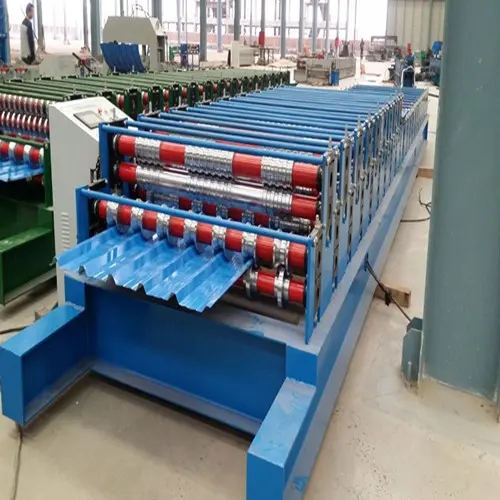
A Deep Dive into Roll Forming Machine Factories
Roll forming is a sophisticated manufacturing process that has gained immense popularity in various industries due to its efficiency and versatility. At the heart of this process is the roll forming machine, a crucial piece of equipment that shapes metal into desired profiles through continuous bending. This article explores the role and significance of roll forming machine factories and their impact on modern manufacturing.
Roll forming machine factories specialize in the design, production, and assembly of these machines, catering to a wide range of industries, including automotive, construction, and electrical. The factories employ skilled engineers and technicians who are well-versed in the intricacies of metal processing. The production of roll forming machines involves a series of complex steps, from initial design and prototyping to the final assembly and testing.
One of the key aspects that set roll forming machine factories apart is their commitment to customization. Different industries have unique requirements, and off-the-shelf solutions often do not meet these needs. As a result, many factories offer bespoke solutions, where machines are tailored to specific applications. This customization can involve adjustments in the design of roll tooling, the overall machine configuration, and the materials used in construction.
Quality control is another critical factor within roll forming machine factories. Given the precision required in the manufacturing process, factories implement rigorous testing protocols to ensure that each machine meets industry standards. This includes weighing the performance of the machine under various operational conditions, evaluating material tolerance, and ensuring durability. Factories often utilize advanced technologies such as computer numerical control (CNC) in the manufacturing process to enhance precision and replicate successful designs.

Moreover, roll forming machine factories are increasingly adopting Industry 4.0 technologies. The integration of the Internet of Things (IoT) and automation into production lines allows for real-time monitoring and analytics, leading to improved efficiency and reduced downtime. These advancements not only streamline production but also offer insights into machine performance, enabling proactive maintenance strategies.
Sustainability has also become a focal point for roll forming machine factories. Modern machines are designed to minimize waste during the roll forming process, making them more environmentally friendly. Factories are investing in energy-efficient technologies and practices, contributing to greener manufacturing methods.
The roll forming industry is continuously evolving, driven by innovations in materials and manufacturing techniques. As market demands change, roll forming machine factories are at the forefront of these innovations, developing machines that can accommodate new materials like advanced alloys and composites.
In conclusion, roll forming machine factories play a pivotal role in the manufacturing landscape. By combining advanced technology with skilled craftsmanship, they produce solutions that meet the dynamic needs of various industries. With a focus on customization, quality control, and sustainability, these factories are not only shaping metal but also shaping the future of manufacturing. As industry demands continue to evolve, roll forming machine factories will undoubtedly remain a key player in driving progress and innovation.